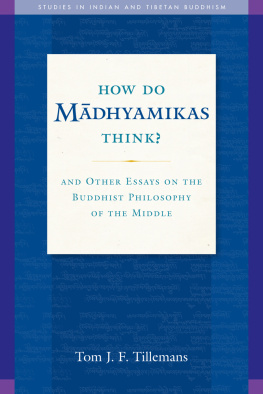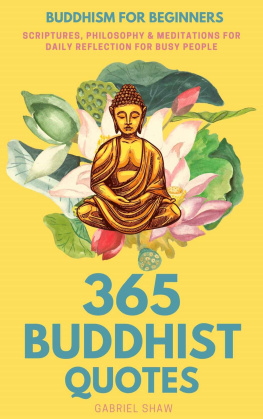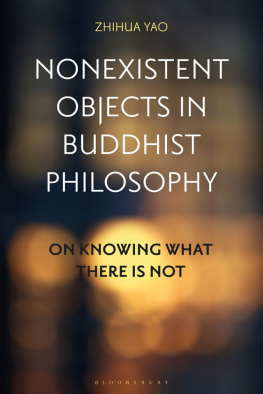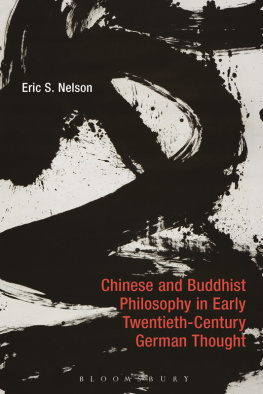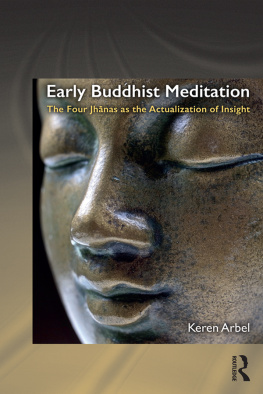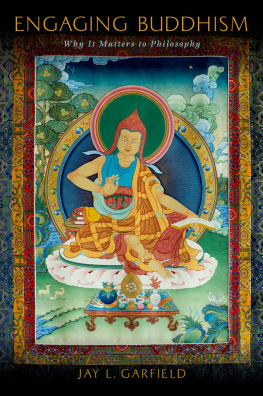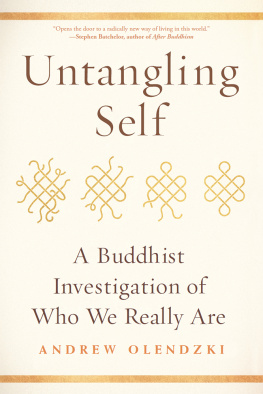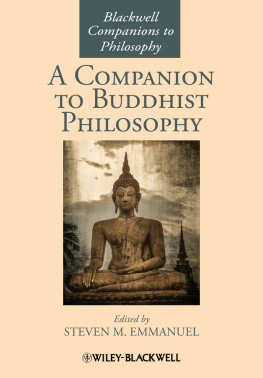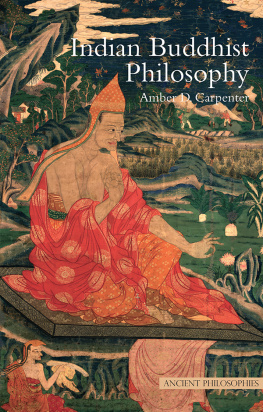Tillemans - How Do Madhyamikas Think? : And Other Essays on the Buddhist Philosophy of the Middle
Here you can read online Tillemans - How Do Madhyamikas Think? : And Other Essays on the Buddhist Philosophy of the Middle full text of the book (entire story) in english for free. Download pdf and epub, get meaning, cover and reviews about this ebook. year: 2016, publisher: Simon & Schuster, genre: Religion. Description of the work, (preface) as well as reviews are available. Best literature library LitArk.com created for fans of good reading and offers a wide selection of genres:
Romance novel
Science fiction
Adventure
Detective
Science
History
Home and family
Prose
Art
Politics
Computer
Non-fiction
Religion
Business
Children
Humor
Choose a favorite category and find really read worthwhile books. Enjoy immersion in the world of imagination, feel the emotions of the characters or learn something new for yourself, make an fascinating discovery.
How Do Madhyamikas Think? : And Other Essays on the Buddhist Philosophy of the Middle: summary, description and annotation
We offer to read an annotation, description, summary or preface (depends on what the author of the book "How Do Madhyamikas Think? : And Other Essays on the Buddhist Philosophy of the Middle" wrote himself). If you haven't found the necessary information about the book — write in the comments, we will try to find it.
Tillemans: author's other books
Who wrote How Do Madhyamikas Think? : And Other Essays on the Buddhist Philosophy of the Middle? Find out the surname, the name of the author of the book and a list of all author's works by series.
How Do Madhyamikas Think? : And Other Essays on the Buddhist Philosophy of the Middle — read online for free the complete book (whole text) full work
Below is the text of the book, divided by pages. System saving the place of the last page read, allows you to conveniently read the book "How Do Madhyamikas Think? : And Other Essays on the Buddhist Philosophy of the Middle" online for free, without having to search again every time where you left off. Put a bookmark, and you can go to the page where you finished reading at any time.
Font size:
Interval:
Bookmark:

HOW DO MDHYAMIKAS THINK?
Studies in Indian and Tibetan Buddhism
This series was conceived to provide a forum for publishing outstanding new contributions to scholarship on Indian and Tibetan Buddhism and also to make accessible seminal research not widely known outside a narrow specialist audience, including translations of appropriate monographs and collections of articles from other languages. The series strives to shed light on the Indic Buddhist traditions by exposing them to historical-critical inquiry, illuminating through contextualization and analysis these traditions unique heritage and the significance of their contribution to the worlds religious and philosophical achievements.
Members of the Editorial Board:
Tom Tillemans (co-chair), Emeritus, University of Lausanne
Jos Cabezn (co-chair), University of California, Santa Barbara
Georges Dreyfus, Williams College, Massachusetts
Janet Gyatso, Harvard University
Paul Harrison, Stanford University
Toni Huber, Humboldt University, Berlin
Shoryu Katsura, Ryukoku University, Kyoto
Thupten Jinpa Langri, Institute of Tibetan Classics, Montreal
Frank Reynolds, Emeritus, University of Chicago
Cristina Scherrer-Schaub, University of Lausanne
Ernst Steinkellner, Emeritus, University of Vienna
Leonard van der Kuijp, Harvard University

How Do Mdhyamikas Think? collects philosopher Tom Tillemanss writings on the most rarefied of Buddhist philosophical traditions, the Madhyamaka, and its radical insights into ontology, epistemology, and the well-lived life. Tillemans excels in bringing analytic and continental philosophy into conversation with thinkers in the Sanskrit and Tibetan traditions. His approach ranges from relating the history of ideas, to considering implications of those ideas for practice, to formal appraisal of their proofs. These twelve essays are products of rich and sophisticated debates and dialogues with colleagues in the field, bringing readers on a fascinating journey through Buddhisms most intriguing school of thought.

This collection comprises much of Tillemanss best work, illuminating with uncommon clarity a range of questions in Buddhist epistemology, metaphysics, philosophy of language and logic. The insights he provides are often highly original and are very profound. The methodology on display should be a model for philosophical engagement with the Buddhist tradition.
JAY GARFIELD, Smith College
Among this marvelous, wide-ranging collection of essays will be found insights that will both deepen the understanding of scholars and address the spiritual and ethical concerns of Buddhist practitioners.
STEPHEN BATCHELOR, author of After Buddhism
A great addition to the growing field of philosophical studies of the Madhyamaka tradition done by a scholar who combines to the highest degree philological rigor and deep philosophical acumen. This is an absolute must-read.
GEORGES B. J. DREYFUS, Williams College

TOM TILLEMANS was previously coeditor of the Journal of the International Association of Buddhist Studies. Now an emeritus professor at the University of Lausanne, he is editor in chief of 84000, an online translation of the Buddhist scriptures preserved in the Tibetan canon, and co-chair of the editorial board of the Studies in Indian and Tibetan Buddhism series.
Table of Contents
Contents
Publishers Acknowledgment
T HE PUBLISHER gratefully acknowledges the generous contribution of the Hershey Family Foundation toward the publication of this book.
Introduction
T HE ESSAYS COLLECTED here are on the Madhyamaka, the philosophy of the middle that begins with Ngrjuna and ryadeva in the second century CE and evolves throughout Indian, Tibetan, and Chinese Buddhism. Many have appeared previously and are reprinted with a few revisions; some (chapters 5, 7, and 12) are new. As in my previous work on other Buddhist philosophers, notably Dharmakrti, these essays zigzag between a historico-philological approach and philosophical analysis. It is a delicate balance. Madhyamaka needs to be understood charitably with the best philosophical reading that textual data and intellectual contexts permit.
The book is loosely organized in terms of four topics: Madhyamakas philosophical promise (chapters 1 and 2), features of its philosophy of logic and language (chapters 37), its ethics and spiritual path to Buddhist enlightenment (chapter 810), and its potential contributions to contemporary philosophical controversies (chapters 11 and 12).
This philosophy has had a mixed reception, both in the past and nowadays. It has been taken as the pinnacle of subtlety by its promoters but also vilified, and even simply ignored, by many Buddhists and non-Buddhists alike, one of the frequent objections being that it distorted opposing realist positions willfully and thus refuted straw men. The first essay, Trying to Be Fair, attempts an initial view of the lay of the land, in a charitable light. The second, How Far Can a Mdhyamika Refute Customary Truth? takes up issues of relativism, truth, and ontology. Chapters 3 and 4 deal with the question of whether the Mdhyamika respects universally the law of noncontradiction; the argument is that while a weak, nonadjunctive type of inconsistency may well fit some stras and possibly Ngrjuna, inconsistency of any sort is considered as a fault by the time of the sixth century and is thus not endorsed by major Mdhyamikas such as Candrakrti, Bhviveka, and their successors. Chapter 5, Prasaga and Proof by Contradiction in Bhviveka, Candrakrti, and Dharmakrti, takes up a crucial application of the law of noncontradiction: reductio ad absurdum, or prasaga, which has long been considered the preferred strategy of the Mdhyamikas who follow Candrakrti (commonly known as prsagikas) to expose the internal flaws of philosophical positions while not taking a position of their own. The use of proof by contradiction in the Mdhyamika thinkers Candrakrti and Bhviveka is contrasted with that of Dharmakrti, a sixth/seventh century non-Mdhyamika metaphysical realist, who along with the founder of the Epistemological School, Dignga (fifth century), is sometimes the direct adversary, and often the minence grise, in so many later Indo-Tibetan Madhyamaka debates. Chapter 6, Apoha Semantics: What Did Bhviveka Have to Do with It? is the most historical and philological chapter of the book. It shows how close the relationship between Epistemologists and Mdhyamikas was historically in India, as the dominant semantic theory adopted by the leading Indo-Tibetan Buddhist thinkers seems to have been quite significantly influenced by the sixth-century Mdhyamika Bhviveka. Chapter 7, What Happened to the Third and Fourth Lemmas in the Tibetan Madhyamaka? takes up problems that arise in Tibetan interpretations of the third and fourth lemmas in the famous tetralemma, or catukoi, whose use Mdhyamikas claimed as essential to their abstention from all theses (paka, pratij) or philosophical positions (
Next pageFont size:
Interval:
Bookmark:
Similar books «How Do Madhyamikas Think? : And Other Essays on the Buddhist Philosophy of the Middle»
Look at similar books to How Do Madhyamikas Think? : And Other Essays on the Buddhist Philosophy of the Middle. We have selected literature similar in name and meaning in the hope of providing readers with more options to find new, interesting, not yet read works.
Discussion, reviews of the book How Do Madhyamikas Think? : And Other Essays on the Buddhist Philosophy of the Middle and just readers' own opinions. Leave your comments, write what you think about the work, its meaning or the main characters. Specify what exactly you liked and what you didn't like, and why you think so.

